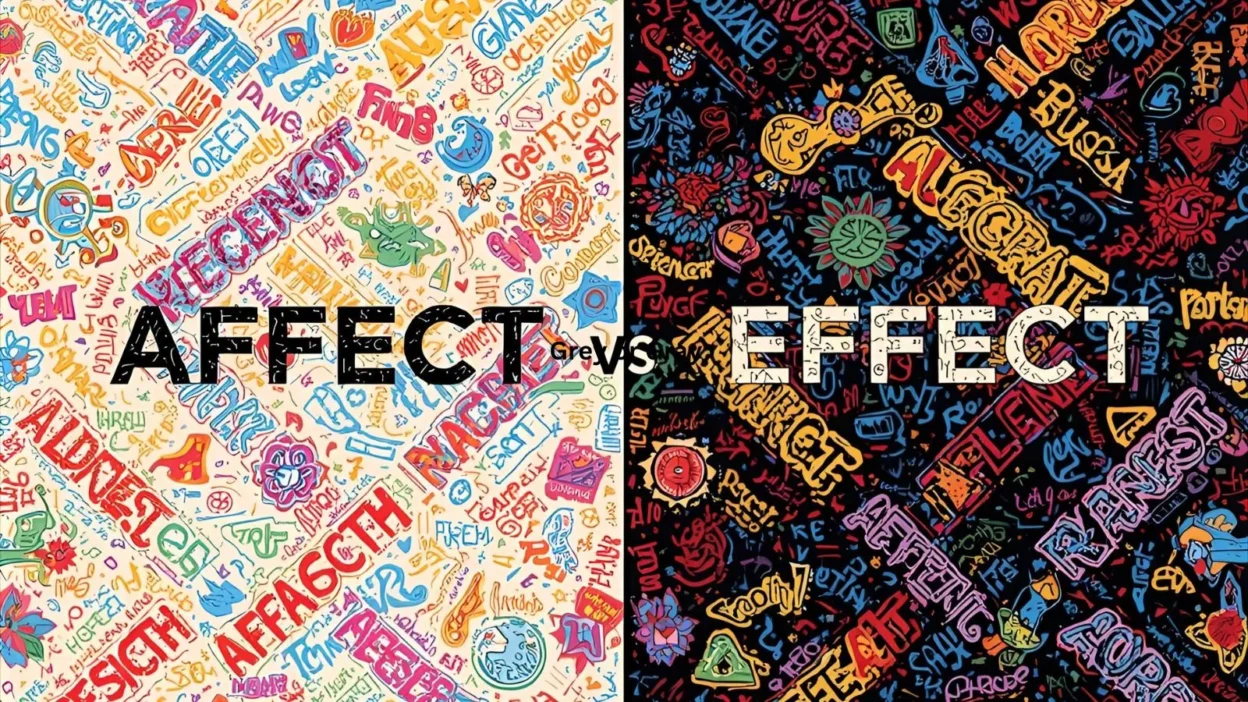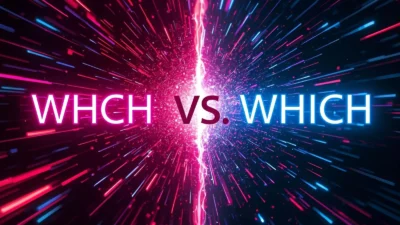If you’ve ever paused while writing and asked yourself, “Should I use affect or effect?” you’re not alone.
Millions of English learners, students, professionals, and even native speakers search for “affect vs effect” every day.
This confusion comes from the fact that the two words sound similar, look alike, and are closely related in meaning—but they are used differently.
Using the wrong word can change the meaning of your sentence, confuse readers, or make your writing look less professional.
That’s why understanding the difference between affect and effect is so important.
This article provides a simple, clear, and complete explanation of the difference, including grammar rules, word origins, spelling comparisons, common mistakes, and practical examples.
By the end, you’ll know exactly when to use affect and when to use effect—without hesitation.
Affect vs Effect – Quick Answer
- Affect is usually a verb, meaning to influence or make a change.
- Example: The weather can affect your mood.
- Example: The weather can affect your mood.
- Effect is usually a noun, meaning the result or outcome.
- Example: The new law had a positive effect on society.
- Example: The new law had a positive effect on society.
👉 Quick tip: If you can replace the word with influence, use affect. If you can replace it with result, use effect.
The Origin of Affect vs Effect
Both words come from Latin:
- Affect comes from afficere meaning “to influence or act upon.”
- Effect comes from effectus meaning “a result or completion.”
They entered English through French in the 14th century. Over time, both words kept their similar sound and spelling, which is why confusion still exists today.
British English vs American English Spelling
Interestingly, affect vs effect does not differ in spelling between British and American English. However, some differences appear in usage frequency.
| Word | British English Example | American English Example |
| Affect | Cold weather can affect travel plans. | Stress may affect performance at work. |
| Effect | The new policy had little effect. | The medicine had side effects. |
So, the spelling is the same, but preferred usage may differ slightly across regions.
Which Spelling Should You Use?
- If writing for the US audience → Stick with the standard rule: affect (verb), effect (noun).
- If writing for UK/Commonwealth readers → The rule is the same; however, “effect” may appear more often in legal and academic texts.
- If writing for a global audience → Use the standard definitions. Since spelling doesn’t change, your readers will understand you worldwide.
Common Mistakes with Affect vs Effect
- ❌ The movie really had a strong affect on me.
✅ Correction: The movie really had a strong effect on me. - ❌ The new manager effected the employees’ morale.
✅ Correction: The new manager affected the employees’ morale. - Confusing rare uses: Effect can sometimes be a verb (to bring about), and Affect can be a noun in psychology (a display of emotion). But in daily writing, stick to the main rules.
Affect vs Effect in Everyday Examples
- Emails: How will the new schedule affect our deadlines?
- News: The policy changes had an immediate effect on fuel prices.
- Social Media: Rainy weather always affects my vibe.
- Formal Writing: The long-term effects of climate change are concerning.
Affect vs Effect – Google Trends & Usage Data
Google Trends shows that people search for “affect vs effect” most often in:
- United States
- India
- United Kingdom
- Philippines
- Australia
Searches peak during exam seasons and when major world events happen (like economic changes or health crises). This proves that learners and professionals alike often struggle with these two words.
Comparison Table: Affect vs Effect
| Word | Part of Speech | Meaning | Example Sentence |
| Affect | Verb | To influence | The storm will affect travel plans. |
| Effect | Noun | Result or outcome | The storm had a major effect on flights. |
FAQs on Affect vs Effect
Q1. What is the easiest way to remember affect vs effect?
👉 Affect = Action (verb), Effect = End result (noun).
Q2. Can effect be a verb?
👉 Yes, but rarely. “The manager effected changes in the system.” (means brought about).
Q3. Can affect be a noun?
👉 In psychology, yes. “The patient showed flat affect.” But in normal writing, avoid this.
Q4. Why do people confuse affect and effect?
👉 Because they look and sound similar, and both relate to change.
Q5. Is affect positive or negative?
👉 It depends. Affect can be neutral: The speech affected the audience.
Q6. Do British and American English use different spellings?
👉 No, both spell them the same.
Q7. Which word is used more?
👉 Effect is searched more, but affect appears more often in everyday writing.
Conclusion
The confusion between affect vs effect has existed for centuries, but the solution is simple once you know the rule. Use affect as a verb when something is influencing a change, and use effect as a noun when describing the result of that change. While both words share the same Latin roots and similar sounds, their grammatical roles set them apart.
Whether you’re writing an academic paper, a professional email, or a social media post, using the right word shows clarity and professionalism. Remember: Affect = Action, Effect = End result. With this guide, you now have the knowledge and confidence to use both words correctly in any situation.



